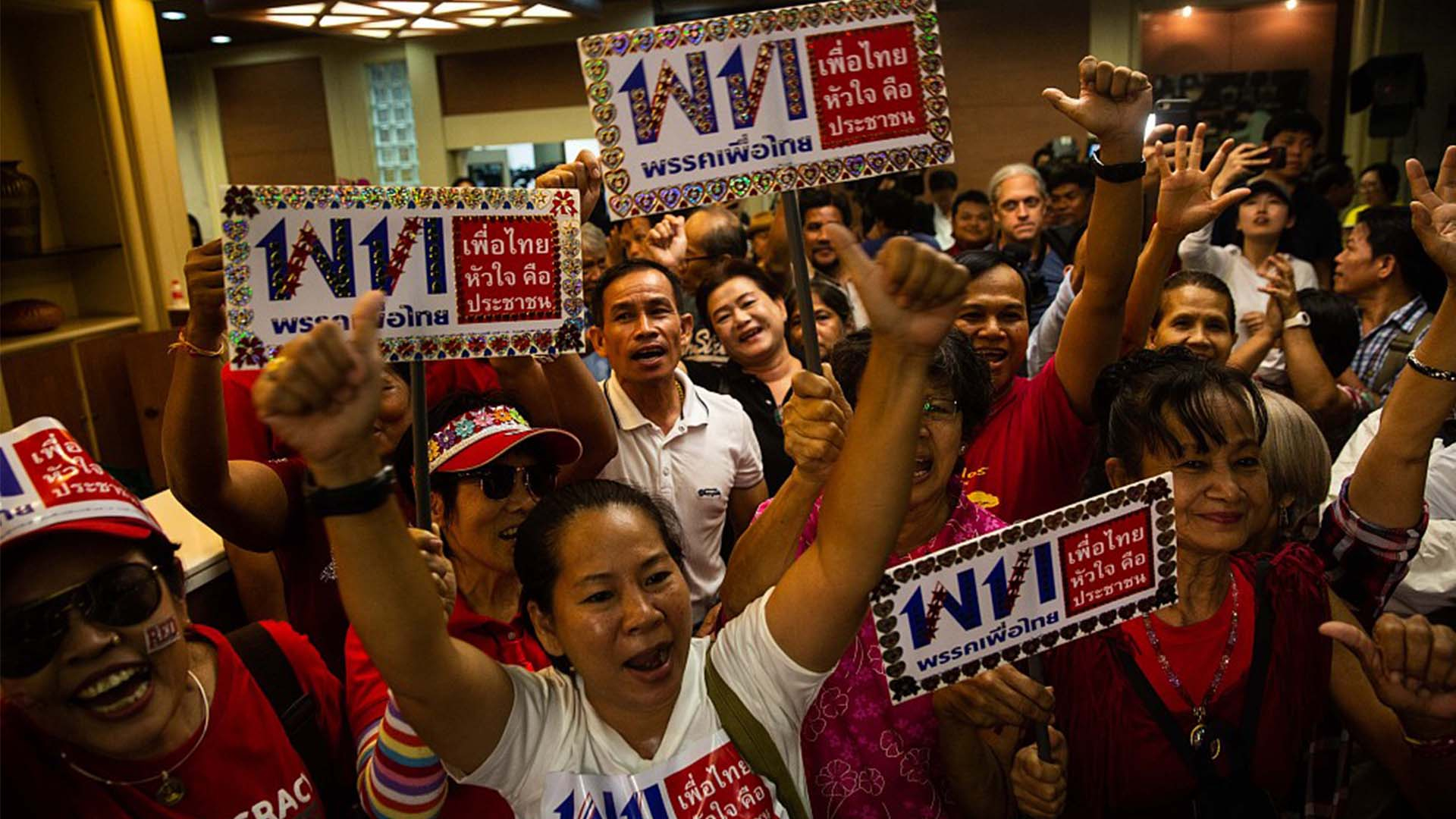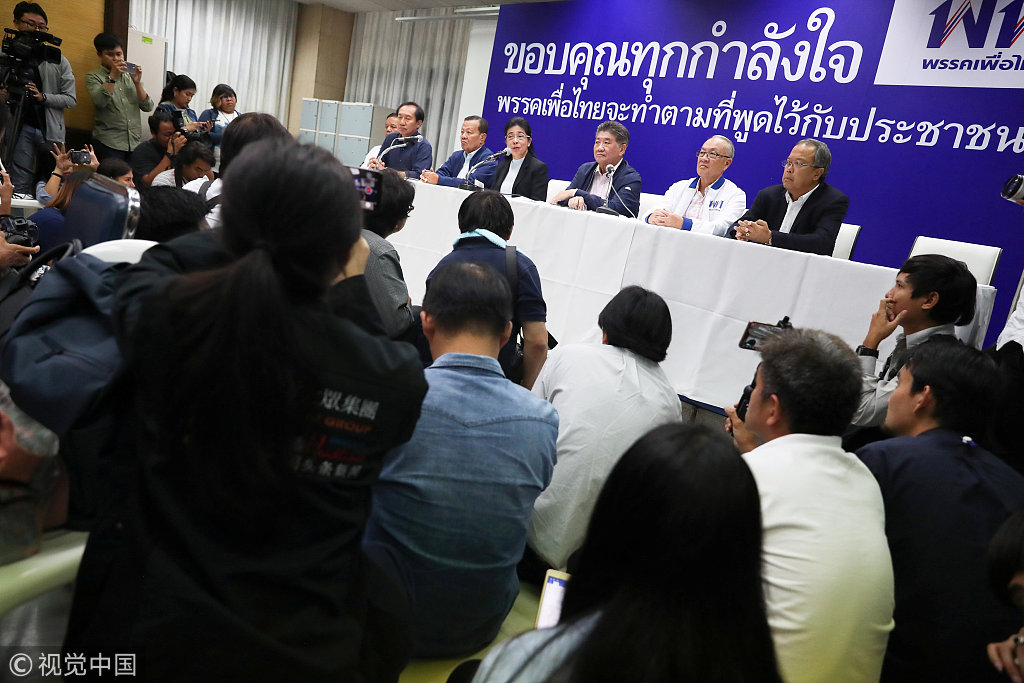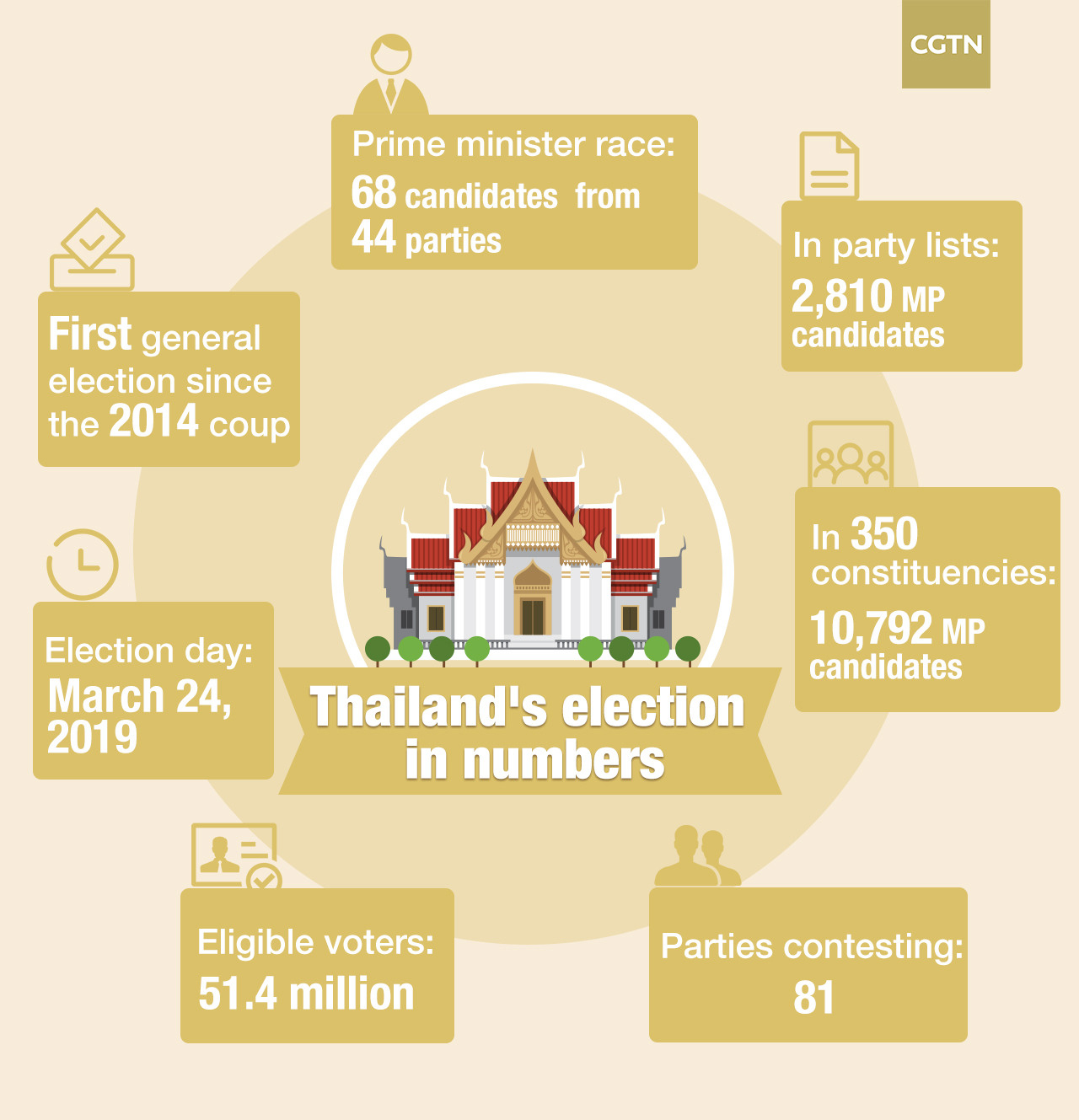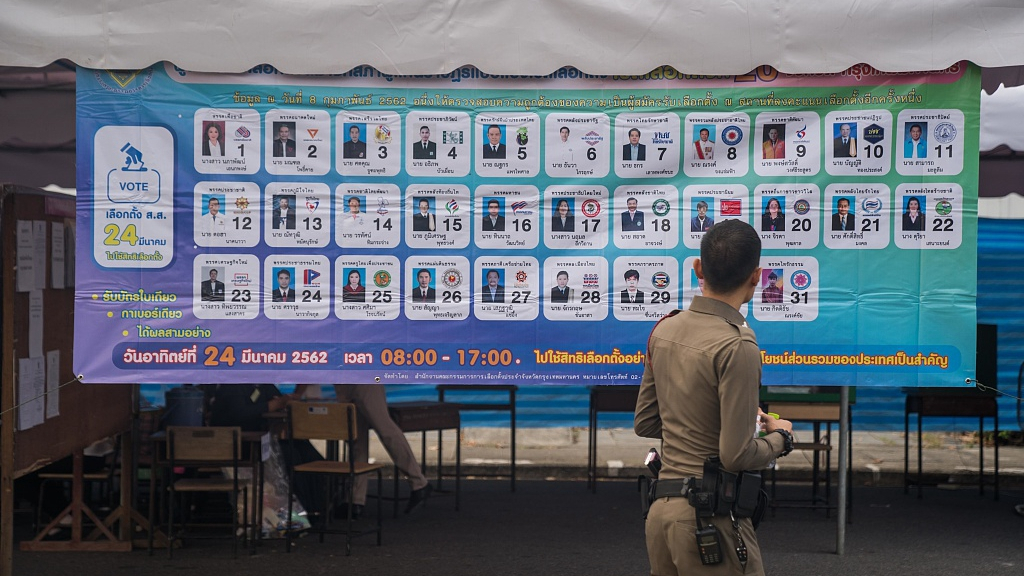
Asia Pacific
09:12, 25-Mar-2019
Thailand's pro-Thaksin party leads in constituency MP count, but many seats undecided
Updated
21:52, 25-Mar-2019
CGTN
00:37

The pro-military Palang Pracharath party won 97 seats allocated to constituency MPs while the main pro-Thaksin Pheu Thai got 137 in Thailand's first general election since the 2014 coup, according to the Election Commission's unofficial results on Monday.
The overall winner of Sunday's election may not emerge for weeks because the Election Commission has said it will announce the official results of the final 150 seats in the 500-seat parliament on May 9.
Read more:
Although the pro-Thaksin Pheu Thai won the most constituency seats, early results give the pro-military party a larger share of the popular vote (about half a million more votes).

Pro-Thaksin party holds a news conference at Pheu Thai Party headquarters in Bangkok, Thailand, March 25, 2019. /VCG photo
Pro-Thaksin party holds a news conference at Pheu Thai Party headquarters in Bangkok, Thailand, March 25, 2019. /VCG photo
Thailand's ousted former prime minister, Thaksin Shinawatra, said on Monday that the ruling military party "manipulated" the election results after its unexpected popular vote lead.
"I knew that the junta running Thailand wanted to stay in power, but I cannot believe how far it has gone to manipulate the general election on Sunday," Thaksin wrote in the opinion piece in the New York Times.
The announcement of the results was delayed more than once. Unveiling results with 95 percent of the votes counted after the second delay within 24 hours, the commission said the delay was due to the complex computation between constituency-based MPs and that of party-list MPs.

According to the initial results, nine parties have entered the lower house. The anti-military party Future Forward won 30 constituency MP seats and the Democrat Party got 33.
The new constitution allows parliament's upper house, the 250-seat Senate, to vote with the 500-seat lower house to choose the prime minister. The Senate is entirely appointed by the ruling military government.
Assuming the Senate backs the same candidate, pro-military parties would need 126 seats in the lower House of Representatives to win a majority in a combined vote. Opposition parties need 376 seats.
The Pheu Thai party, which is linked to former prime minister Thaksin Shinawatra and which was ousted from government in the 2014 coup, won the most constituency seats in Sunday's election and said it will try to form a government with similar-minded parties.
Meanwhile, the military proxy party Palang Pracharat has also announced that the party has talked to other parties and is ready to take the lead in forming a coalition government.

A candidate list outside a polling station on Thai General election day, March 24, 2019. /VCG Photo
A candidate list outside a polling station on Thai General election day, March 24, 2019. /VCG Photo
More than 33 million voters out of the 51 million eligible cast their ballots in the election. The turnout is about 66 percent, while the commission expected more than 80 percent of the voters would join the poll.
Several parties are expected to join Palang Pracharath Party in the creation of a post-election government, including the Bhumjaithai Party and the Democrat Party, according to earlier reports.
Meanwhile, Prayut said earlier that he would continue to assume his concurrent posts as prime minister and chairman of the National Council for Peace and Order until a post-election government has been set up.
(With inputs from agencies)
(Cover: Pheu Thai party supporters gather at the party's headquarters after polls closed during Thailand's general election in Bangkok, March 24, 2019. /VCG Photo)

SITEMAP
Copyright © 2018 CGTN. Beijing ICP prepared NO.16065310-3
Copyright © 2018 CGTN. Beijing ICP prepared NO.16065310-3